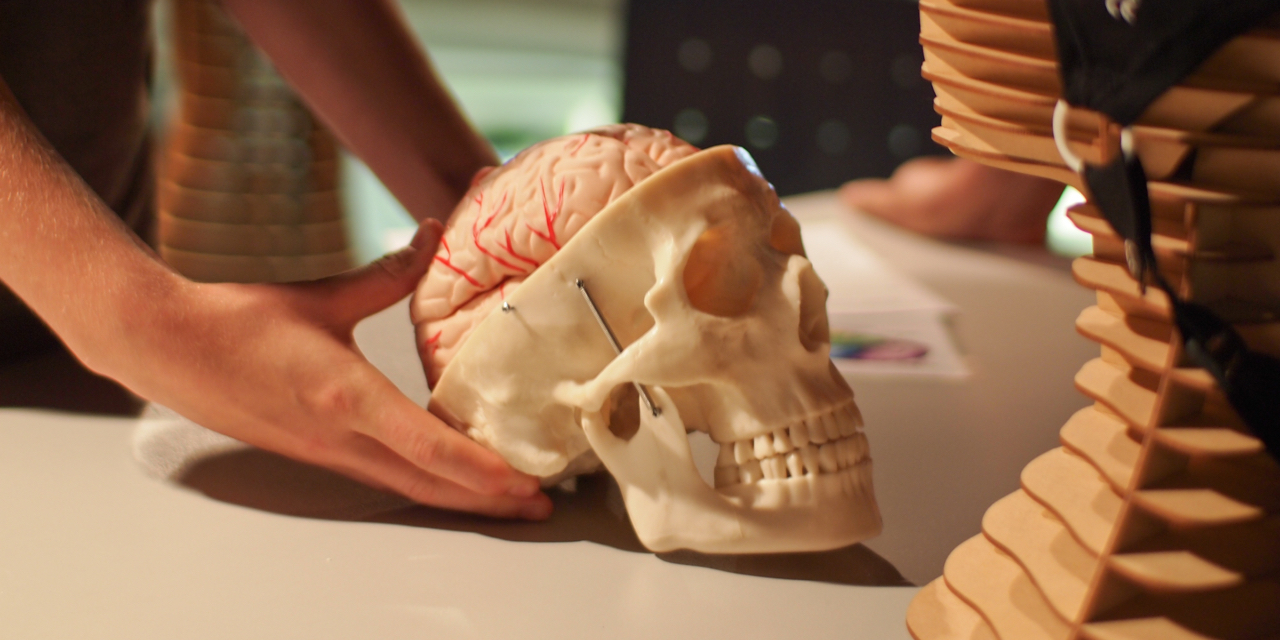Westminster Teachers Explore Music And The Teenage Brain

Martin Hieslmair / flickr.com/photos/arselectronica
“Under Construction” is a sign you will see on Atlanta roads all summer long. It’s also the marker you could affix to any teenager’s head.
Powerful new technologies are enabling brain researchers, healthcare professionals and educators to investigate the connections among brain function, development and behavior in adolescents. One of the interesting threads emerging from this research is the power of music as a therapeutic and pedagogical tool.
Two colleagues from the Westminster Schools in Atlanta, neuroscientist Dr. Anna Moore and WABE contributor and music faculty member Dr. Scott Stewart, have joined forces to look into the teenage brain.
“What I, as a teacher find exhilarating (and at times exasperating) about this age group,” Dr. Stewart explains, “is that the teen brain remains highly receptive to ‘training.’ Through what happens in our classrooms and the out of class work we inspire students to do, we can change the way brain cells connect and communicate in the brains of our students.”
Dr. Stewart says to think of this transformational period as akin to remodeling a house.
“What is […] really important,” Dr. Moore explains, “is that you have to be exposed to new ways of thinking, exploring and trying things on to really leverage this time of neuroplasticity.”
In her work as a clinical neuropsychologist, she says that she is “intrigued and excited” by the use of music therapies to help with things like language disorders after stroke, memory retrieval in early stages of dementia and movement disorders seen in Parkinson’s disease.
“Music educators are only at the tip of the iceberg,” Dr. Moore says, “in terms of thinking about music beyond just its value as an aesthetic or an elective or an add on. In terms of application to schools, I think we are seeing an enthusiasm for the idea, but we have not even scratched the surface in terms of application.”
9(MDAxODM0MDY4MDEyMTY4NDA3MzI3YjkzMw004))








